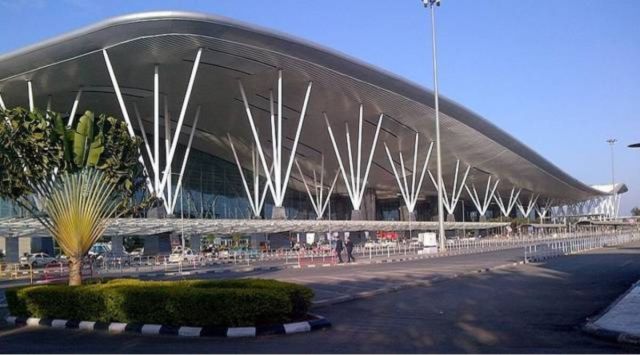Bengaluru airport achieves ACI’s highest Level 4+ Transition and Green Airports Recognition
The Level 4+ Transition accreditation is one of the highest accolades an airport can receive under the Airport Carbon Accreditation programme.
 The Level 4+ Transition accreditation is one of the highest accolades an airport can receive under the Airport Carbon Accreditation programme. With this, BIAL aims to become net zero by 2030 and continue to reduce carbon emissions. (File)
The Level 4+ Transition accreditation is one of the highest accolades an airport can receive under the Airport Carbon Accreditation programme. With this, BIAL aims to become net zero by 2030 and continue to reduce carbon emissions. (File)
Adding another feather in its cap, the Kempegowda International Airport, Bengaluru (KIAB Airport), operated by Bangalore International Airport Limited (BIAL), has achieved a new milestone by attaining Level 4+ Transition under the globally recognised Airport Carbon Accreditation (ACA) programme.
The Level 4+ Transition accreditation is one of the highest accolades an airport can receive under the Airport Carbon Accreditation programme. With this, BIAL aims to become net zero by 2030 and continue to reduce carbon emissions.
Furthermore, BIAL also received ACI’s Green Airports Recognition 2023 Platinum award in the 15-35 million passengers per annum category, as a recognition of its Plastics Circularity initiatives such as single-use plastic elimination and roads from plastic waste at the airport.
As a part of its sustainability initiatives, BIAL has also implemented various measures, including energy-efficient infrastructure, waste management systems and renewable energy projects.
Water stewardship, net zero carbon emission, community aligned noise management, circular economy, sustainable procurement and sustainable mobility are some of the pillars on which BIAL operates the airport.
According to the airport officials, this strategic framework directly contributes to 11 of the United Nations’ Sustainable Development Goals (UNSDGs) and indirectly contributes to the other six UNSDGs. In fact, the new terminal 2 of BIAL also boasts of several sustainable features.
While the interiors made of bamboo and lush gardens contribute to the beauty of the terminal, these are also essential components contributing to the sustainability pillar of T2. The engineered bamboos are designed to be fire retardant and long-lasting, while the gardens and forest cover naturally cleanse the air.
Solar panels and daylight harvesting results in overall 24.9 per cent energy savings. Rainwater harvesting, six major rainwater-fed ponds with 413 million litre of water to cater to the airport’s requirements and multipurpose lagoons where pollutants are cleaned naturally – are integral parts of the terminal’s sustainability plan.
Hari Marar, MD & CEO of BIAL said, “Attaining Level 4+ Transition under the prestigious Airport Carbon Accreditation programme is a testament to our unwavering commitment to environmental sustainability and our relentless efforts to reduce carbon emissions. This recognition reinforces our position as a front-runner in efficient carbon management and demonstrates our dedication to shaping a more sustainable future for the aviation industry. We remain steadfast in our pursuit of innovative practices, investments in cutting-edge technology, and collaborations with stakeholders to minimize our carbon footprint and drive positive change within the industry.”







